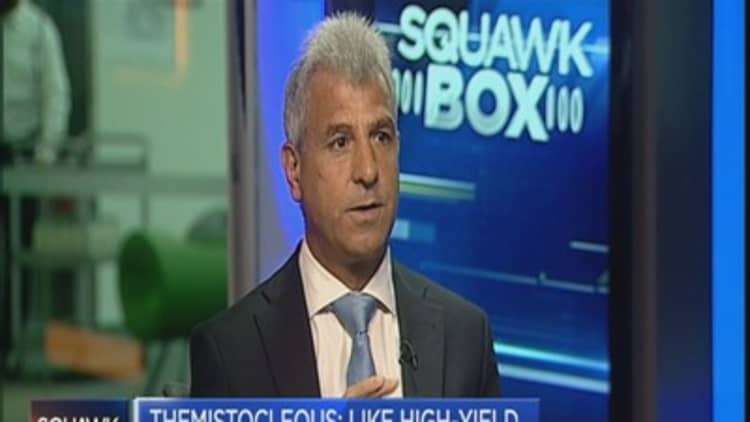
At a time when fears are high about market liquidity comes a significant shift in the primary players in the corporate bond market.
Households, hedge funds and nonprofit groups, a bunch historically considered to be long-term holders of fixed-income instruments, ditched corporate debt in the second quarter, selling $122 billion after reducing their holdings by just $24 billion over the previous three months, according to data from the Federal Reserve and Bank of America Merrill Lynch.
Conversely, purchases by foreigners more than doubled, from $80 billion to $172.2 billion. Foreigners now own more than a quarter of the $8.1 trillion corporate bond market, with a 25.9 percent stake that is just shy of the 26.5 percent portion owned by mutual and exchange-traded funds.
Households, a category that for statistical purposes also includes hedge funds, now own just 4 percent of the group.
"Thus the corporate bond market continued to grow largely based on demand from just two types of investors, both of which to some extent are not long-term investors: foreign investors and mutual funds/ETFs," Yuriy Shchuchinov, credit strategist at BofAML, said in a report for clients.
Read MoreBond market's 'slow-moving train wreck'
Ownership of bond funds, and in particular who the principal buyers are in the market nowadays, is important as investors prepare for a changing market ahead.
Rising interest rates will make a more challenging environment for a U.S. bond market valued at $39.5 trillion. But the main challenges will be in the $12.7 trillion Treasury market as well as the corporate space.
Securities and Exchange Commission regulators are poring over debt instruments and rules at funds for making sure liquidity provisions are proper.
Read MoreFisher: Fed rate decision 'discomforted' market
However, a shrinking marketplace could exacerbate a big rush to the door in case of a bond panic. Having fewer buyers in the market, as has been the case as regulations have tightened for investment banks, makes matters more difficult.
The concerns were heightened following Oct. 15, 2014's bond market "flash crash,"in which liquidity vanished momentarily. A subsequent government inquiry found no specific cause for the incident.






